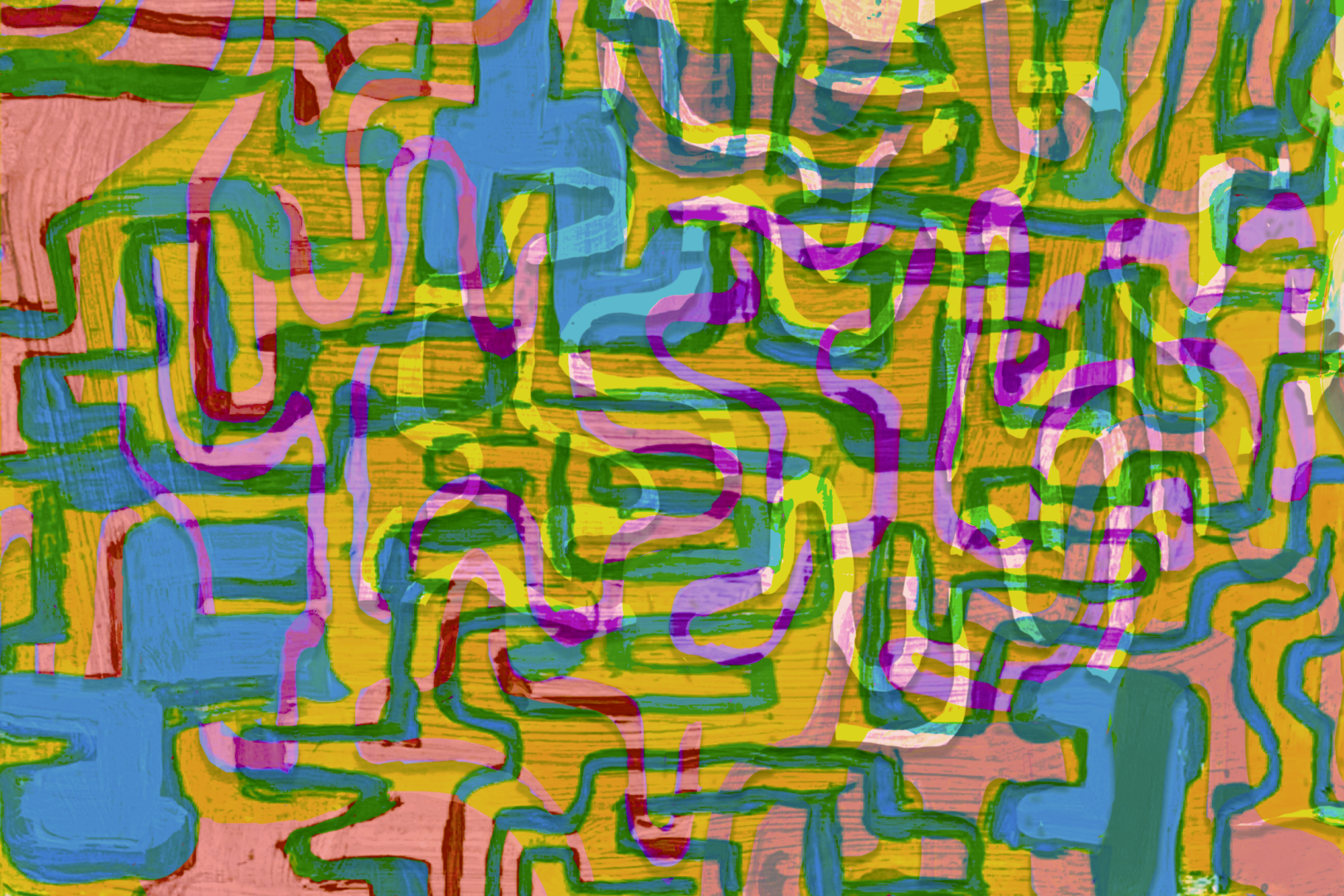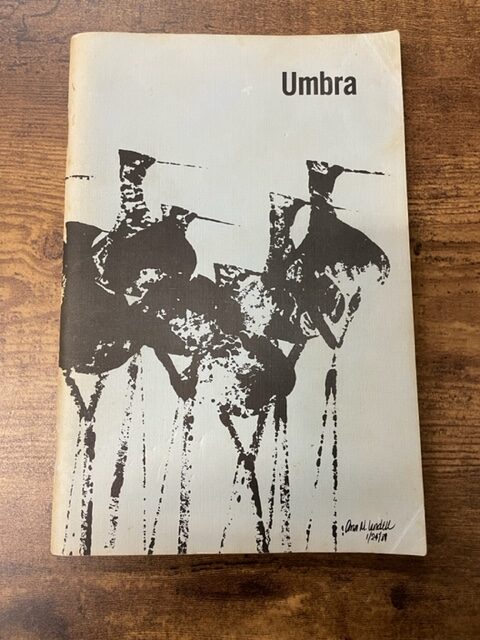
We interviewed three NOCCA Creative Writing alums for this special issue of Umbra about one of their poems published in previous editions. We gauged their initial reactions to re-reading their high school poems, asked them about their experience at NOCCA, and other reflections on their old work. We chose Brad Richard’s prose poem “Sea Orphan” from the 1981 issue of Umbra.

The wind is believed to be a midwife in the land where I come from; she and my mother gave birth to me by the sea, where my mother left me. That is how I came to be adopted by the storm. The storm taught me when I was young—I learned about the sea, and the cliffs, and all the rocks by the shore. She told me that the past was invented by sailors, and that the dust the wind carried was the souls of stillborn children. Once she told me that I was dead; I asked her if I must always be so, but she only answered with a long, gusty laugh. She warned me not to try to talk with the villagers, as they would not understand me and I would only frighten them—I did not know their language, she said, I only knew the language of the sea, the strangled words of the drowned.
The storm stayed with every season, drowning crops or spitting hail in the villagers’ faces; then she became a drizzle, a mist, and was gone. The villagers celebrated, building bonfires, and dancing, and baking pastries filled with wild fruits. I watched them for a while, then went up on the cliffs and caught a seagull in its nest. I held it tight, but it tried to scratch my wrists with its claws, so I plucked out its eyes with my fingernail—then I threw it, screeching with pain, into the air, and let it try to fly above the ocean, until its wings collapsed and it plunged onto the breakers.
What was your first reaction to rereading this poem after so many years? Can you reflect on how you feel about the poem now? I had completely forgotten about this piece, but once I started reading it, I remembered it well. This was one of several prose poems I wrote in a mythic vein, relying on intense, elemental imagery and told in a lyric voice with a relatively flat tone. There are similar traits in a lot of my poems and stories from that era. What I admire here are the ways in which my imagination tried to suggest a whole world in a few gestures, with its own rules about storms, birth (how many mothers does this speaker have?!), ghosts, and death. I also admire the general creepiness here, and my willingness to let the narrator be further distinguished from the villagers at the end by contrasting their joyful celebrations with his bizarre, solitary act of violence. If you thought this ghost-child might turn out OK, well … Do you still connect with the emotions/thoughts you were trying to convey with this earlier piece? In the first half of this piece, the speaker is recalling a very sheltered childhood, where his understanding of the world derives only from what he learns from the entities who raised him. (I’m assigning him a male pronoun both because I wrote the work and because I think I intended this speaker to be a male child raised by female entities.) In the second half, he loses the storm, his adoptive mother, and I can understand him becoming violently angry when he sees the villagers celebrating her departure. Yes, I can identify with the violence of grief, whether it’s for a person or a city. What class or readings at NOCCA do you think influenced the poem? I did my independent study on Gabriel García Márquez, and I very strongly feel his influence here: I think I borrowed some items from his prop shop. I can also feel the very specific influence of Jules Supervielle’s short story “The Child of the High Seas,” which haunts me to this day. We read a lot of mythic, fabulist, magical realist work, and I’m grateful for the kinds of permission it gave and continues to give to my imagination. What similarities do you see between "Sea Orphan" and your current work? I think a lot of my work, from Habitations to Parasite Kingdom, has explored odd imaginative. spaces and perspectives, whether in trying to evoke a sense of strangeness in the mundane, or exploring a persona very different from myself, or striking off for strange territories where the terms of reality are both different from and an interrogation of ours. So, in a general but important sense, I feel very strongly connected to what this piece is doing. Do you have any advice for your younger NOCCA-poet self? Stick with this strange stuff!

Brad Richard is the author of four collections of poems, most recently Parasite Kingdom (winner of the 2018 Tenth Gate Prize). His most recent chapbook, In Place, was selected for the 2021 Robin Becker Series from Seven Kitchens Press. He lives, writes, gardens, and occasionally teaches in New Orleans. More at bradrichard.org.